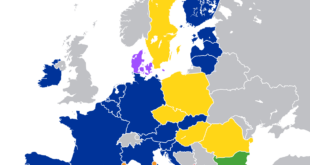- Recently, the National Investigation Agency (NIA) told a special court in Mumbai that the arrested assistant police inspector Sachin Waze, now suspended from Mumbai Police, was not cooperating in the probe against him and was insisting on his lawyer being present during interrogation.
- Separately, Waze filed an application seeking to be allowed to meet his lawyer in privacy while he is in police custody.
Is access to a lawyer the right of an accused?
- Across the world, various rights are available to a person while in custody of an investigating agency to prevent him or her from being forced into giving self-incriminating statements through means including torture.
- The International Covenant on Civil and Political Rights affirms the right of an accused to be informed of the reasons for an arrest, the charges against him and the right to be provided legal assistance.
- The “Miranda rights” or “Miranda warning”, as they are referred to in the US, require a police officer to inform a suspect being arrested that he has the right to talk to a lawyer for advice before being questioned and the right to have a lawyer with him during questioning.
- In India, the safeguards available to a person in such circumstances are enshrined in the Constitution.
What does the Constitution say about the right of an accused to be defended?
- Article 22(1) gives the fundamental right to every person not to be denied the right to be defended by a legal practitioner of his or her choice.
- Article 14 provides for equality before the law and equal protection of the laws within the territory of India.
- Article 39A, part of the Directive Principles of state policy, states that equal opportunity to secure justice must not be denied to any citizen by reason of economic or other disabilities, and provides for free legal aid.
- Section 41D of the Criminal Procedure Code (CrPC) states that an accused is entitled to “meet an advocate of his choice during interrogation, though not throughout interrogation”.
Lawyers present during interrogation of an accused in custody:
- Unlike in some countries, lawyers in India are not allowed to be with an accused throughout their investigation.
- Apart from the provisions of Section 41D of the CrPC, courts also rely on the Supreme Court judgment in the D K Basu case of 1997, considered the guiding principles to be followed by investigating agencies in cases of arrest or detention.
- The judgment states that “an arrestee may be permitted to meet his lawyer during interrogation, though not throughout the interrogation”.
- The Supreme Court stressed the safeguards for accused, but also spoke of “difficulties in detection of crimes”, especially in cases of “hardcore criminals”, and ruled that a lawyer cannot be permitted to remain present throughout the interrogation.
SOURCE: THE HINDU,MINT
 Chinmaya IAS Academy – Current Affairs Chinmaya IAS Academy – Current Affairs
Chinmaya IAS Academy – Current Affairs Chinmaya IAS Academy – Current Affairs



